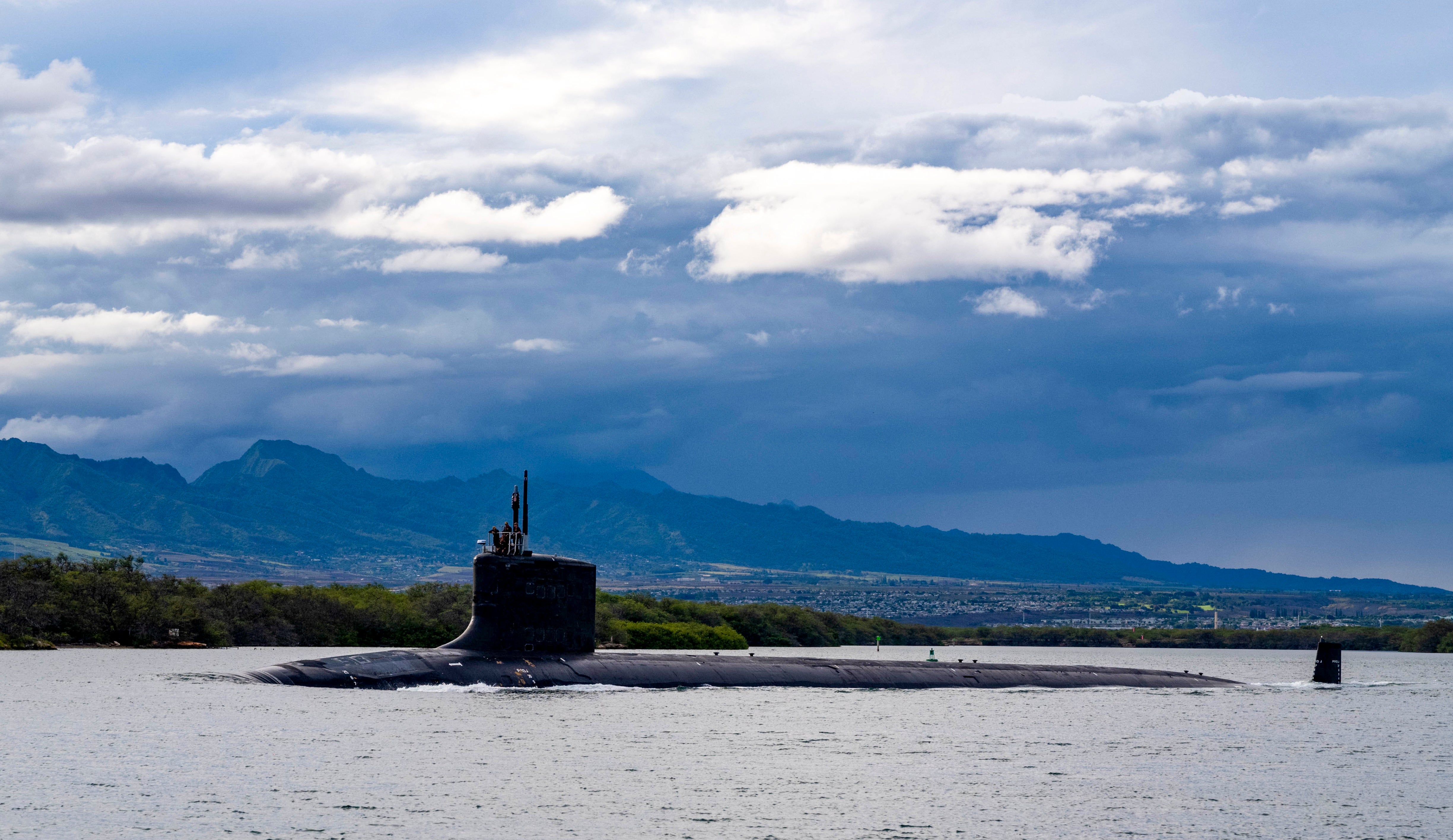Indonesia, Malaysia concerned about Australia's nuclear subs
The foreign ministers of Malaysia and Indonesia are concerned that Australia’s plan to obtain nuclear-powered submarines may increase the rivalry of major powers in Southeast Asia

Your support helps us to tell the story
From reproductive rights to climate change to Big Tech, The Independent is on the ground when the story is developing. Whether it's investigating the financials of Elon Musk's pro-Trump PAC or producing our latest documentary, 'The A Word', which shines a light on the American women fighting for reproductive rights, we know how important it is to parse out the facts from the messaging.
At such a critical moment in US history, we need reporters on the ground. Your donation allows us to keep sending journalists to speak to both sides of the story.
The Independent is trusted by Americans across the entire political spectrum. And unlike many other quality news outlets, we choose not to lock Americans out of our reporting and analysis with paywalls. We believe quality journalism should be available to everyone, paid for by those who can afford it.
Your support makes all the difference.The foreign ministers of Malaysia and Indonesia expressed concern Monday that Australia’s plan to obtain nuclear-powered submarines may increase the rivalry of major powers in Southeast Asia.
The U.S., Britain and Australia announced last month that they have formed a security alliance that will help equip Australia with nuclear-powered submarines. The alliance will reshape relations in the Indo-Pacific region and beyond.
Under the arrangement, Australia will build at least eight nuclear-powered submarines using U.S. expertise, while dumping a contract with France for diesel-electric subs. The nuclear subs will allow Australia to conduct longer patrols and give the alliance a stronger military presence in the region.
“This situation will certainly not benefit anyone,” Indonesian Foreign Minister Retno Marsudi said after meeting with her Malaysian counterpart, Saifuddin Abdullah, in Jakarta “We both agreed that efforts to maintain a peaceful and stable region must continue and don’t want the current dynamics to cause tension in the arms race and also in power projection.”
The two ministers said at a joint news conference that they agreed to strengthen the unity and centrality of the Association of Southeast Asian Nations and urged all members of the bloc to contribute to the stability, security, peace and prosperity of the region and respect international law.
Saifuddin said having a near-neighbor build new nuclear-powered submarines could encourage other countries to come more frequently into Southeast Asian territory.
Saifuddin is in Jakarta to prepare for a visit to Indonesia by Malaysian Prime Minister Ismail Sabri Yaakob later this year, his first overseas trip since taking office in August.
Saifuddin and Marsudi expressed disappointment with Myanmar for hindering a planned visit by an ASEAN envoy to help mediate in its political crisis.
Myanmar's refusal to cooperate with the envoy's visit led to a decision by ASEAN to invite a non-political representative instead of Myanmar’s leader, Senior Gen. Min Aung Hlaing, to participate in an Oct. 26-28 ASEAN summit.
“The ASEAN special envoy was not given the access he deserved to visit Myanmar to fulfill his mandate,” Saifuddin said. “We are very disappointed."
Myanmar's military ousted an elected civilian government in February and seized power. There has been widespread opposition to its rule.
Marsudi said there has been no significant progress in implementing an agreement which ASEAN reached with Min Aung Hlaing in April.
The five-point agreement called for violence to end immediately and for the start of a dialogue to find a peaceful solution “in the interests of the people.” It was also agreed that a special ASEAN envoy would mediate in the talks.
“Our efforts as a family did not get a good response from the Myanmar military,” Marsudi said.
The two ministers said they also agreed to cooperate in responding to the coronavirus pandemic, which will be the main topic of the ASEAN summit, in the protection of Indonesian migrant workers in Malaysia, and in the settlement of the maritime boundary between the two countries.
ASEAN’s members are Brunei, Cambodia, Indonesia, Laos, Malaysia, Myanmar, the Philippines, Singapore, Thailand and Vietnam. Brunei is chair of the bloc this year.
ASEAN has formal partnerships with several countries including Australia, China, Canada, New Zealand, South Korea and Pakistan as well as the European Union.
Malaysia and Indonesia share many similarities in religion, language and culture.
Subscribe to Independent Premium to bookmark this article
Want to bookmark your favourite articles and stories to read or reference later? Start your Independent Premium subscription today.